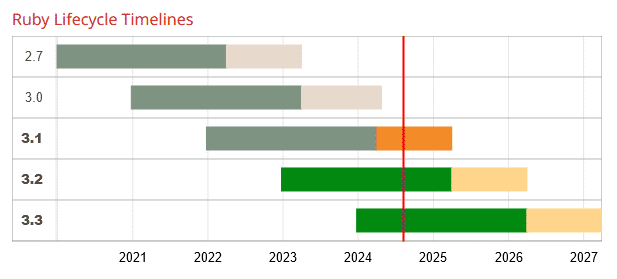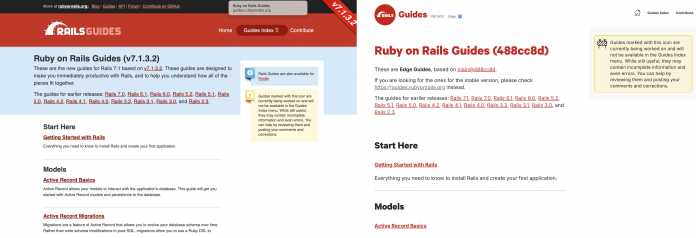The development team behind Ruby on Rails has released a new minor version, Rails 7.2. Nearly 2,500 commits were added to the most important web framework for Ruby developers. Among other things, they bring innovations in handling development containers, current Ruby versions, and Ruby’s JIT compiler WiJIT.
Advertisement
Rails 7.2 is a minor release of the seventh major version, released in December 2021 with a focus on full-stack development and a Node.js-free approach. Also, while previously it was limited to Webpack, there is a free alternative to Bundler since then.
Configure the development container
Development containers (dev containers) are available in Rails to use containers as fully featured development environments. For example, applications can be run both locally and in a public or private cloud and the tools, libraries, or runtimes needed for the code base can be isolated.
The new Rails version now allows you to create a dev container configuration for an application. It consists of a .devcontainer folder with a Dockerfile, a docker-compose.yml file, and a devcontainer.json file. By default, a dev container contains a Redis container, a database, a headless Chrome container for system testing, and active storage.
A new application including the dev container can be created as follows:
$ rails new myapp --devcontainerThe new one can be used for existing applications devcontainerUse the -command:
$ rails devcontainerMore info on how to use dev containers Provides documentation,
on one Clear Documentation The development team is also working. So far updates have been limited to Edge Guidewhich refers to the current master branch for Rails. When the final changes are complete, the update will be pushed to the Rails 7 stable release guide.
The layout of the guides remains the same, but among other things, they should have less design, simplified navigation and pins ChapterProvide navigation bar while scrolling.
The Rails documentation is currently being revised, as shown in the before (left) and after (right) views.
(Picture: Ruby on Rails,
Say goodbye to Ruby legacy issues
New Rails releases require Ruby to be at least version 3.1. To date, only major Rails versions have removed compatibility with older versions of the programming language. This is now changing, as from now on Ruby versions that have reached their expiration date will also be removed from Rails support in minor versions.

Ruby 3.0 has reached its expiration date and is no longer supported by Rails.
(Picture: ruby-lang.org,
Information about the lifecycle of Ruby versions The official Ruby website provides.So the expiration date for version 3.1 should be March 31, 2025.
There are also innovations dealing with YJIT – Ruby’s JIT compiler, which has been available in CRuby since Ruby 3.1 and aims to enable latency improvements of 15 to 25 percent. Anyone using Ruby 3.3 or newer will now find YJIT enabled by default in Rails 7.2. The compiler can be disabled via Rails.application.config.yjit = false,
All further updates can be done in Rails 7.2 a blog entry And Release Notes Removal
(May)
 My Scrum is broken #128: Tasks to be done
My Scrum is broken #128: Tasks to be done







